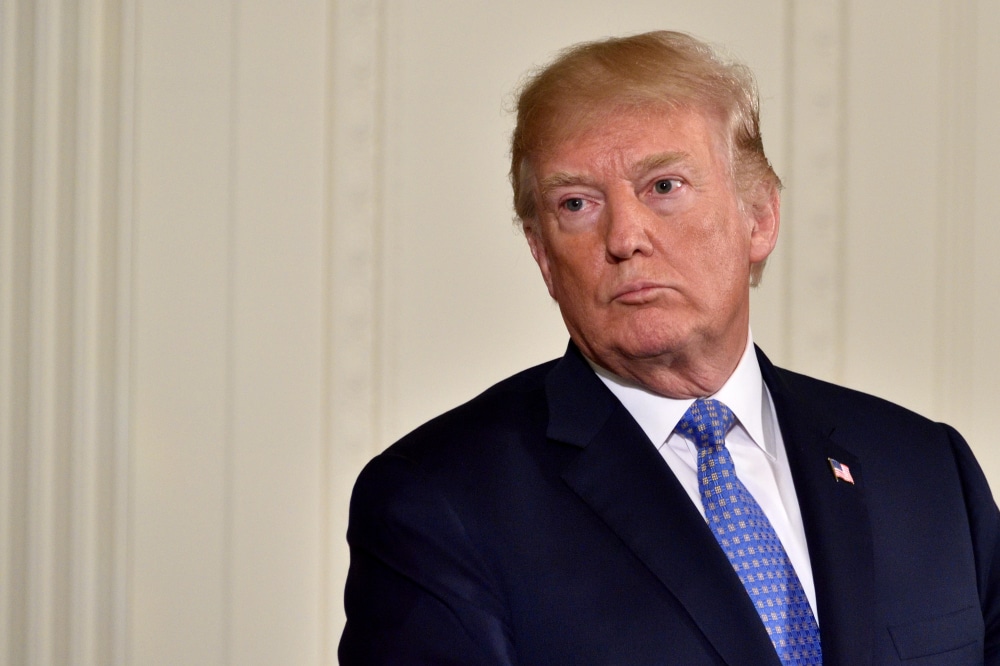Behind the White House’s “Excellent” Health Report, Whispers of Trump’s Mental Decline Grow Louder
President Donald Trump says he’s in “excellent health.” His doctor agrees. But outside the official glow of White House press releases, a different conversation is gaining traction—one filled with skepticism, concern, and pointed questions about the former president’s mental fitness.
Earlier this spring, the 78-year-old returned to headlines not just for his policy moves, but for a highly publicized health checkup that sought to reassure Americans. According to Dr. Sean Barbabella, Trump displayed “robust cardiac, pulmonary, neurological and general physical function.” The report praised his “active lifestyle,” detailed his recent weight loss, and even confirmed that his cholesterol levels had improved.
“His neurological screening showed no signs of impairment,” Dr. Barbabella noted, “and his mood, reflexes, motor skills, and sensory responses were within optimal range.”
The evaluation included input from 14 specialists and addressed everything from mental health indicators to the minor sun damage on his face—a lasting mark from the assassination attempt in Butler, Pennsylvania in July 2024.
Still, not everyone is convinced.

Political Voices of Dissent
Rick Wilson, co-founder of the anti-Trump conservative group The Lincoln Project, is urging Americans to look past the polished report.
“He is incoherent,” Wilson said during a Times Radio interview. “He rambles, he forgets where he is, his verbal aphasias are hard to ignore.”
Wilson has tracked Trump closely since 2015, and insists that something has shifted.
<blockquote>“This isn’t the Trump of 2015, or even 2020. He’s visibly deteriorated.”</blockquote>
He warns that the president’s day-to-day behavior—marked by off-script tangents and increasingly disjointed speeches—is what people should be paying attention to, not the scripted results of a controlled health screening.

And the ultimate concern? Trump’s ability to survive a second term—not just politically, but mentally and physically.
“Whether he makes it through four more years is a very open question,” Wilson said.
Haunted by the Past?
Journalist Timothy L. O’Brien added a deeper layer to the discussion during an MSNBC appearance. He claims that Trump has long been “haunted” by the memory of his father Fred Trump’s cognitive decline due to Alzheimer’s.
“It’s not just political for Trump—it’s personal,” O’Brien said. “There’s a fear, a shadow of what happened to his father that may influence the way he presents himself today.”
While O’Brien believes Trump is still driven by a mix of ego and survival, he’s not convinced the 45th president is fully prepared for another term in office—either physically or emotionally.

A Shift in Strategy
Unlike previous election cycles, Trump’s 2025 health disclosure took a more detailed approach. In 2016 and 2020, his team provided only vague letters from doctors, with few concrete numbers or test results. This time, under growing scrutiny, the campaign offered specifics—possibly to silence critics or show a willingness to be transparent.
“All his physicians, including Dr. Ronny Jackson, have concluded he is in excellent health to be Commander in Chief,” campaign director Steven Cheung said in a statement last year.
Cheung also used the opportunity to go on offense, claiming that Vice President Kamala Harris—then a leading Democratic challenger—had failed to match Trump’s stamina or public presence during campaign events.
What a Test Doesn’t Reveal
But Wilson and other critics aren’t disputing the numbers. They’re questioning what those numbers leave out.
Passing a cognitive screening, they argue, doesn’t mean someone isn’t showing signs of early decline. And while Trump’s medical team says his test results are strong, his opponents believe the warning signs are playing out in real time, in front of cameras, microphones, and voters.
“You can’t measure someone’s grip on reality with a blood panel,” Wilson remarked. “You watch. You listen. And right now, what we’re seeing isn’t reassuring.”
Trump’s April health report was meant to put rumors to rest. Instead, it may have given them new life.
While doctors maintain that Trump is in fine condition for his age, political voices from within his own former party remain skeptical. They aren’t looking at the test results. They’re looking at the man.
And as the next election approaches, the divide between clinical assessments and public perception is only widening.


